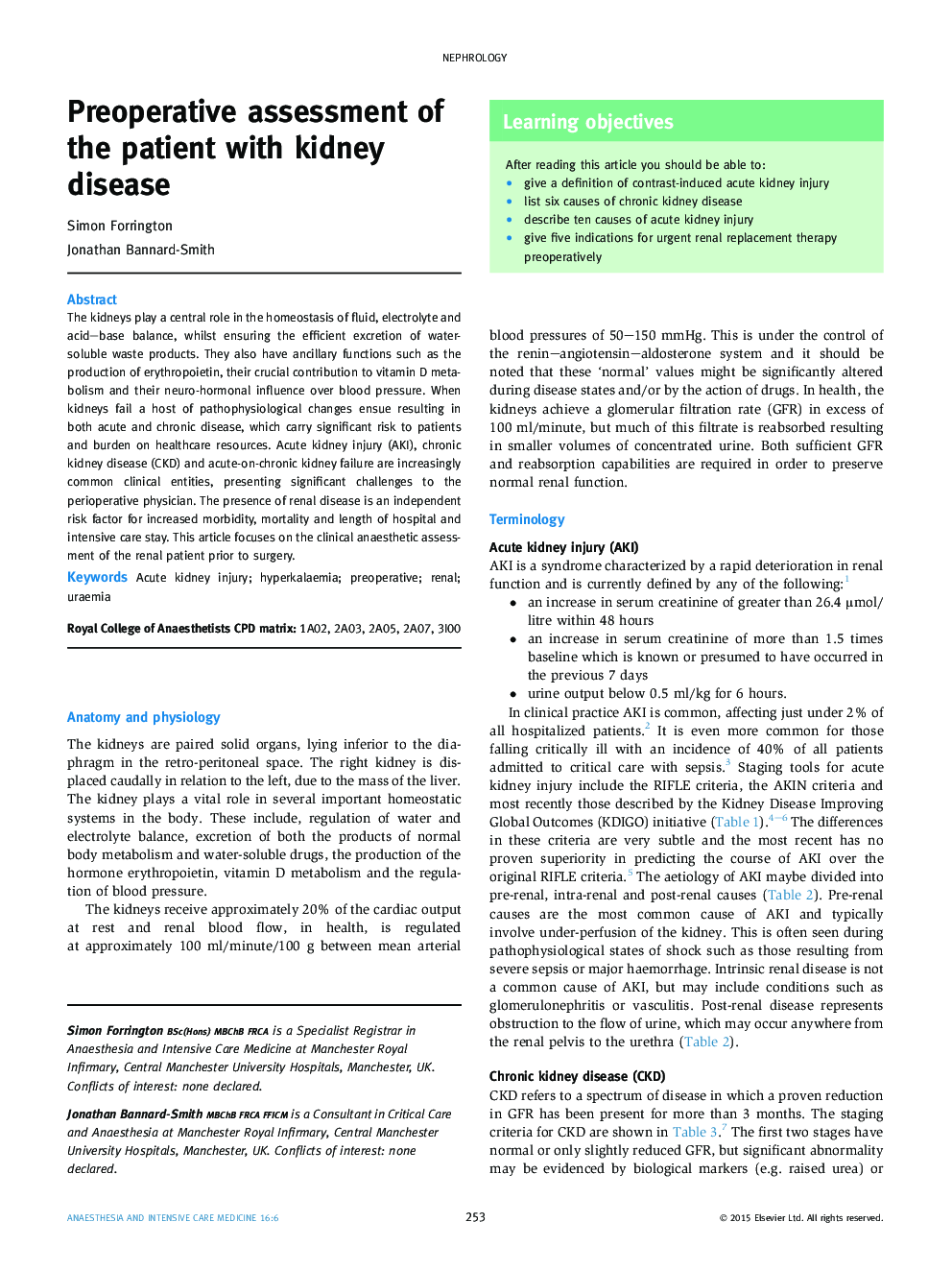| Article ID | Journal | Published Year | Pages | File Type |
|---|---|---|---|---|
| 2742201 | Anaesthesia & Intensive Care Medicine | 2015 | 4 Pages |
The kidneys play a central role in the homeostasis of fluid, electrolyte and acid–base balance, whilst ensuring the efficient excretion of water-soluble waste products. They also have ancillary functions such as the production of erythropoietin, their crucial contribution to vitamin D metabolism and their neuro-hormonal influence over blood pressure. When kidneys fail a host of pathophysiological changes ensue resulting in both acute and chronic disease, which carry significant risk to patients and burden on healthcare resources. Acute kidney injury (AKI), chronic kidney disease (CKD) and acute-on-chronic kidney failure are increasingly common clinical entities, presenting significant challenges to the perioperative physician. The presence of renal disease is an independent risk factor for increased morbidity, mortality and length of hospital and intensive care stay. This article focuses on the clinical anaesthetic assessment of the renal patient prior to surgery.
